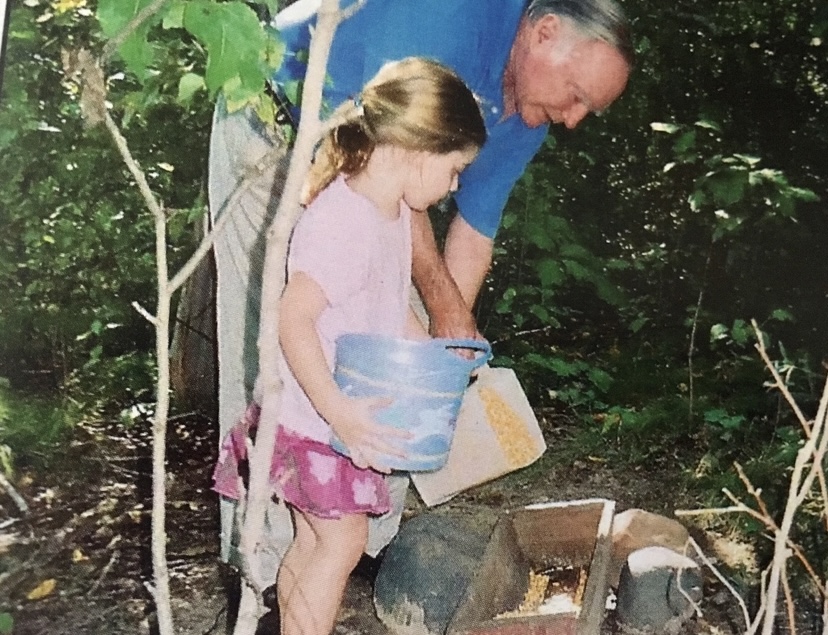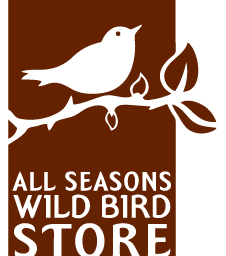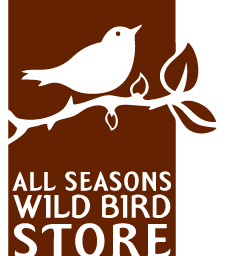ANN’S WINDOW TO NATURE
Many of us have had parents and grandparents who happily shared their love of nature. But did you know, that as their hair grays and their memories fade—they often retain their love of nature. In fact, spending time outdoors walking, watching birds, and feeding birds is good for their mental and physical health.
My father was 73 when he passed. He was a birder, a gardener, and a fisherman. He loved walking the woods of northern Minnesota pursuing the elusive Ruffed Grouse and tramping through the grasslands for a shot at a Ring-necked Pheasant. Success was not measured by the number of birds in his bag—he was happy to come home with an empty bag, sun-kissed cheeks and tired feet. He shared his love of nature with his children and grandchildren.
Even at 73 he celebrated the sights and sounds of spring, the call of emerging frogs, the trumpeting of migrating Sandhill Cranes, the flash of orange from the Baltimore Oriole and the little puffs of yellow from newly hatched goslings. He hung birdhouses, duck boxes, and bat houses. He tended a slew of bird feeders year-round, even at 73. Phenology, critter identification, tracks, sign, and behavior were part of our daily lives. Nature was a gift we all shared.
My father is just one example of how nature can enrich lives in the golden years. Nature nurtures all of our souls. And for the elderly and those with physical limitations, bird feeding can truly be a window to nature.
Care providers, family members and senior living care teams can easily create a bird feeding station that will be enjoyed by all. In fact, a communal station will encourage social interaction which is lacking in the lives of many seniors.


Bird Feeding and Bird Watching Benefits for Seniors:
- Decreases incidence of depression, anxiety, and stress by reducing cortisol (stress hormone) in homebound seniors and provides a connection to the outside world.
- Uplifts the spirit by increasing the release of serotonin (a brain chemical that plays a role in healthy body functions).
- Promotes cognitive skills by identifying species by sight and sound.
- Provides a sense of caregiving for those who can help fill and maintain feeders and birdbaths.
- Aids in fostering relationships and improves overall morale by fostering a mutual topic of conversation.
- Aids in sensory stimulations and memory reminiscence. Bird feeding and bird watching may facilitate learning new things such as preferred seed and suet as well as feeding behavior.
- Provides an outdoor living space that is full of life.
Getting Started
Caregivers, family members and or residence staff can create a bird feeding station on a patio or balcony. Container gardens would be a welcome addition for the seniors and for the birds. We are selling a lot of window platform tray feeders in Eagan. Place a region-specific guidebook nearby.
Basic Bird Feeding
- It is important to keep feeders and birdbaths clean. Use 9 parts water to 1 part bleach and rinse thoroughly.
- It is important to offer quality seed and suet. Avoid dust and filler. Offer seed that will attract a wide variety of birds like Joe’s Mix or Songbird Delight.
- Select seed specific to your environment i.e. less mess or no mess. Avoid mess from spent shells and growth by offering Kracker Jax or #1 Select Sunflowers.
- Consider setting up a feeding station with ERVA poles and squirrel baffles. Hang multiple feeders including a tray for larger birds, a tube feeder, and a suet feeder for woodpeckers and a nectar feeder for hummingbirds. Our ASWBS staff can readily provide insight and suggestions on feeder selection as well as seed selection.
- Place the feeding station where it can easily be viewed and maintained.
For further assistance, visit your local All Seasons Wild Bird Store.
By Eagan Store Manager ANN MCCARTHY

